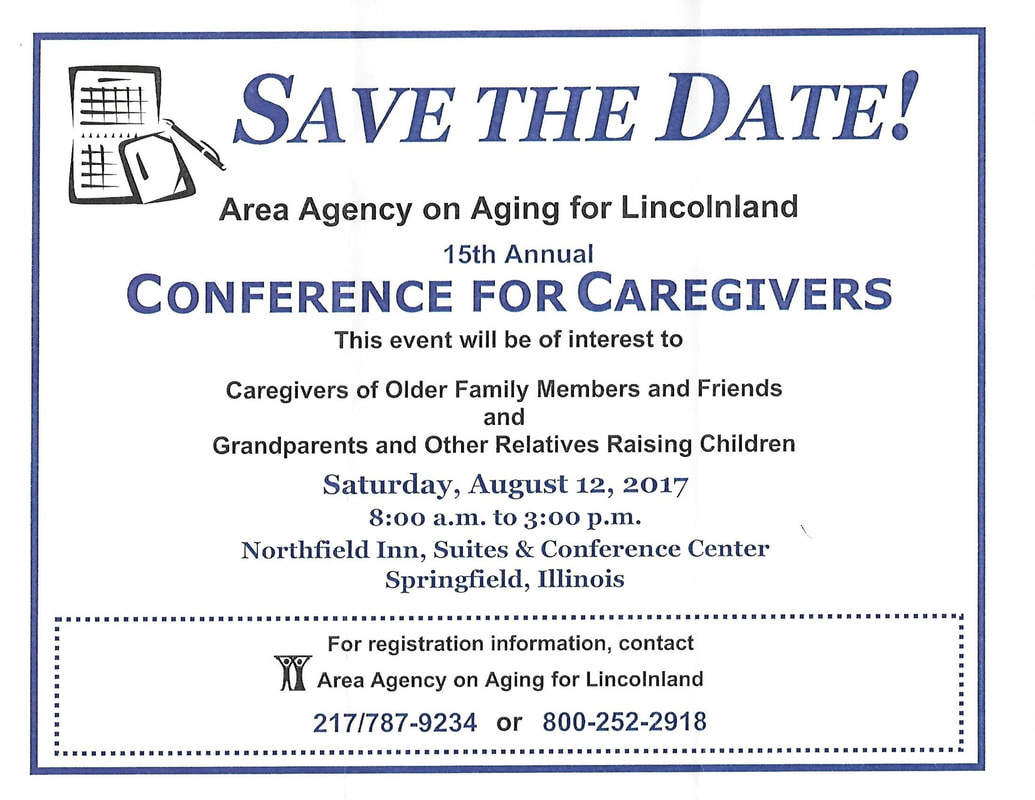|
Once upon a time there were two sisters. Mary built a cabin by the lake with her husband. They sold their house in town upon retirement. The other, Beth, also wanted a “cabin in the woods”. She and her husband planned to retire there as soon as their youngest child finished college.
Things did not turn out as planned. Mary developed lung cancer. She needed to be closer to medical care. Those winding lake roads were not plowed in the winter. She wrote that “The bugs never stop” at the lake. Her condition made it hard for her to keep up with such a house. Since the lake house was new, they had almost no equity yet, and they had to sell. They took a loss as they moved back to town. Beth had a different set of problems. Her husband developed some odd behaviors after he retired. She found it uncomfortable keeping house with him underfoot. She confessed to her daughter that she was considering a divorce! Thankfully, they had not built a cabin in the woods or they would have had no relief from each other. Her husband finally enrolled in a program and participated in local archeology projects. One day the Sherriff’s car drove into her driveway. He announced that her husband had died of a heart attack on one of these projects. Now, Beth was a widow with a child still in college! Thankfully, they had not started to build this cabin. How would she have managed to finish its construction and sale by herself? She didn’t want to live so far from town now that she was alone. What can we learn from these sisters?
0 Comments
Senior depression presents several problems. It appears as “mild” even if it doesn’t affect seniors mildly. Depression symptoms may surface as physical complaints. Seniors grew up in an era when receiving mental help = CRAZY. Each of those problems presents a barrier to treatment. How does a caregiving adult child get a senior to accept the help they need? They really need it. Even though seniors account for 13% of our population, they comprise 18% of all completed suicides! Our society must take senior depression seriously. Medication may not be enough. Religion/spirituality (R/S) may be a treatment pathway that seniors can accept.
Religious and Spiritual Factors in Depression: Review and Integration of Research is a review of literature: a look at 444 research articles on the subject of R/S. All studies were reviewed for their methods. 178 studies were found to be rigorously designed and their data analyzed. Most studies found that seniors who a religious or spiritual practice did better at managing depression or facilitating its resolution. The review found that R/S beliefs may be used to cope/adapt to stressful life circumstances. Seniors certainly face those; life-changing illness, loss of career, loss of home, and loss of spouse/friends. Their lives need ways to adapt. A second part of this study, found a lower likelihood of mood or psychiatric disorder for those who regularly attended religious services. There was one caveat; if the R/S tradition was very orthodox, the senior may feel more judged than supported by their R/S tradition. You know your senior. You know what type of R/S practice they hold. If there is a supportive faith community; try it. This same review of literature noted that “pastoral counselors spend 140 million hours (doing) therapy each year”. That’s more hours than provided by the American Psychological Association! Since it is part of the counseling media, ask for this help for your senior. Does it help? The greatest medicine is no good if your senior won’t take it. The same applies to counseling. If it’s socially acceptable to meet with the pastor; use that method. Health and Spirituality, examined the relationship between health and spirituality. Researchers found that the modern, western era’s response to illness/depression was a departure from other cultures and most of history. In other times, religion was considered an integral part of healthcare. Major illnesses focus the patient’s attention on ultimate meaning, purpose and transcendence. The Nurses’ Study found that women who attended weekly religious services had a lower mortality rate that those who never did. Regular religious attendance was associated with a lower rate of depression. Wow! Does our society need to return to an integrated/ whole person strategy to effectively treat seniors? I believe we should. Have we become too quick to provide pills to our seniors? The Center for Medicare and Medicaid (CMS) has a “rule of 4”. If the senior is taking more than 4 kinds of pills, their risk of medication conflicts and issues increases. While medicine might be helpful, other strategies could make a difference without raising further medication conflicts. How many pills is your senior taking? Is it a constant battle to get them to take medicine? I suggest you discuss the idea of trying regular religious attendance and pastoral counseling instead. As you discuss this method with the doctor, please keep this study result in mind. One study gave cancer patients and their doctors a list of 7 factors to rank when making medical decisions. The patients ranked faith in God 2nd. The physicians placed it last. Thus, it is the adult child/caregiver who must advocate for alternative approaches. Always discuss changes with the doctor. Try adding God; He just might help your senior. Who knew that art might make a critical difference in the treatment of elder depression? In 2001, Dr. Gene Cohen conducted the first experimental study of seniors in cultural programs and its effect on general health, mental health, and social activities: Creativity and Aging.
This study has been citied repeatedly in other works and became a foundation for senior programming. As I researched elder depression, I was struck by three things in relation to this study. First, the date, Creativity and Aging was only done in 2001. We have drawn since we had cave walls. What took us so long to consider the relationship between creative arts and seniors achieving a healthier quality of life? How’s that for an outcome? Second, the design of the study was notable because it included a control group. How else does one obtain hard data? Once the comparisons were made, it was clear; the arts make a difference. We worry about rising health care costs. Perhaps, we could lower direct healthcare costs by utilizing proven cultural programs. If, as this study demonstrates, cultural programs achieve true health promotion and disease prevention effects, why aren’t we using this method to address senior health issues? Third, the seniors studied were OLDER that the average life expectancy! Wow, does that mean we could achieve even more positive health outcomes if we started cultural programming earlier, on younger seniors? It’s something to think about. Medical costs are expanding the way we do things now. I believe it’s time to consider other methods as additions to direct medicine. Think about it. When I begin discussing caregiving, some families respond; “We’ll keep it in the family.” Others comment; “We’ll do it the way our parents took care of their parents”. Caregiving traditions are fine. However, today’s caregiving is different in a number of ways.
These circumstances mean caregiving is a more complex, longer-lasting process working very differently than in previous generations.There are many legal and financial implications for elders and their families as they enter the newest phase of life; the caregiving phase.Our employer’s expectations have not kept up with these demographic changes. Our care systems have not caught up with the need for caregiving support. Our health systems have not even tracked the impact of elder caregiving on the adult children trying t0 shoulder this responsibility. Expecting do-your-own-caregiving is laudable, it may not be feasible. We are a society in transition. Until our society establishes the systems necessary to track, to develop and to adjust to elder caregiving, we must find other ways to fill these gaps. Professional advice on elder caregiving is as important as professional legal and financial advice. There are courses for caregivers. There are legal and financial preparedness classes as well. The courses can help but only if we take them. We decided to prepare to have babies, or prepare to drive cars. We must decide to seek expert advice to prepare us for our transition from ancient forms of elder caregiving to a modern one. Senior Sidekicks offers a course; Preparing to Parent Your Parent. This year, on August 12th, Senior Sidekicks is honored to present at the 15th Annual Conference for Caregivers on the topic of depression. Our mission is to support elder caregivers so this opportunity is especially meaningful to us. Senior Sidekicks will discuss elder depression as well as its affect on the caregiver’s health and state of mind. The Conference for Caregivers is unique in several ways: It was one of the first in the country to highlight the role of elder caregivers. While there is some national conversation about our aging population, its impact on caregivers has not been on the radar. Second, this conference has been self-supporting since its inception. Even through past budget issues, this conference continues on its own. Third, the conference offers respite services to those caregivers who need it in order to attend. How many other caregiver-oriented functions offer respite? Fourth, this conference surveys caregivers who attended on topics they request. Caregivers shaped this year’s conference. We look forward to seeing you! A friend of mine recently asked about what to bring someone in a nursing home who “had a breakdown” following the death of the partner. One of my replies was; “bring yourself”. Aging doesn’t grant us immunity from depression, life happens and we suffer losses. These situations often lead to feeling blue or depressed. That would be true for any age group. However, our society equates age with being depressed. We need to advocate for a change in that viewpoint.
Why do older people often seem depressed?
When these things occur, does medicine consider treating the depression? More than once I have heard medical personnel begin their discussion with the words, “Well this person is elderly.” Age is a stage of life, not a disease. A person who suffers from depression is no different than a person who suffers from anything else. We should be looking for the causes at any age. Patients who receive treatment for depression do better on recovery from physiological conditions than those whose depression is ignored. Depression can lead to other losses. Another senior told me his friend had finally married a long-time girlfriend. He had a heart attack and they got a divorce. The senior did not see the connection but I did; an untreated depression could have contributed to the marital problem. What about antidepressants? Sometimes they work and sometimes they don’t. Medications are tested people who are under age 65. If your senior is 75, 85, or 95+, they are in a different place physically than they were earlier in life. Think about this in terms of yourself. Consider your age, and think back 30 years. What were you doing? How was your health? What was your energy level? Are you the same as you were then? Why do we expect medications to work the same way on seniors who might be 30+ years older than the test group? Thus, it was no surprise to me that the friend in the nursing home also had “struggled with her antidepressants”. What about other forms of intervention? A senior who has lost a spouse might benefit from Cognitive Behavioral Therapy. What grief support groups were brought to this person? Notice I said “brought to”. When depression hits, it may sap the sufferer’s ability to get themselves to the group. Support/help to get a person to the group might be necessary at first. CAUTION: When you hear statements like “ending it all, no use in living, hopeless, or thoughts on death”; call for help. This level of depression requires more drastic intervention. While emergency situations call for drastic measures, those should not be the only ones employed. What other things could you do to help a person suffering from depression?
In my decades of work with seniors, I look at the person first; who were they? What used to matter to them? What would help them restore a part of their life to what it was? Then, I look at many ways to respond. I consider what makes the suffering person better, not what makes it convenient for the staff. Giving a pill and walking away won’t do it. Bring yourself; the present of your presence is the best medicine. The opioid epidemic is in the news. We don’t associate seniors with these issues. However we should be aware of the problems they can create for seniors. We caregivers do what we can to examine in-home help before they participate with our seniors. Agencies run “background checks” on potential employees. However, these methods do not always reveal drug use. Here’s where we are now:
I usually do not make specific resource recommendations but this one is excellent:Current Drug Trends Sgt Bruce R. Talbot (Ret) MPA http://DrugRecognition.com
I strongly recommend you take this course.Let’s keep our seniors safe. This Washington Post article, “Why Are African Americans So Much More Likely Than Whites To Develop Alzheimer’s?” described the current sampling problems. Too few representatives from certain groups lead research to an warped result. I’m not sure the average person understands the effect of a poor sample on results. Here are two examples. The first is a photo of President Elect Truman holding a newspaper whose headline read: Dewey Wins. Dewey didn’t. The newspaper got it wrong because they called people to survey their voting preferences. In those days not all people had phones!
The second was a TV program; Hee-Haw. Nearly all urban critics panned it. However, the Nielsen Ratings showed it was quite popular in rural areas. The rating agency surveyed people in rural areas as well as cities. The program stayed on the air due to a more representative sample. A truly effective treatment/cure for Alzheimer’s disease requires everybody. An effective treatment must also account for future population trends. Each decade, the US population becomes less white. We already have many mixed-race citizens. If we don’t understand the components of our genetic salad we cannot effectively ad-dress it. Everyone bears the costs, regardless of our racial background. It is in our national interest to reach out to all communities now so we all benefit in the future. The article sited the Tuskegee experiment as a cause for hesitation by African Americans. The article did not mention a more modern version of inappropriate behavior; using the cancer cells of Henrietta Lacks without her consent. I hurt for her family. Recruiting more African Americans should address the Henrietta Lacks issue as well as Tuskegee. I can also see the potential for greater help to minorities as we find ways to treat Alzheimer’s. Minorities shoulder a greater personal burden. My firm works with caregivers as well as seniors. We note that communities with fewer financial resources place an even greater burden on caregivers. Thus, the disease injures those who care as well as those who suffer. In The Washington Post article, other family members moved home to help. The article does not discuss the financial costs to these adult children. AARP estimated that caregivers could lose $569,000 in lost wages, lost promotions, reduced savings, and lost pension benefits. That’s a double-whammy I’m not sure our country could withstand. Please read this article from the Washington Post and pass it on. If you put a frog in cold water it will stay there, even as the temperature is gradually increased until it’s cooked. However, if you drop a frog in hot water it will jump out. This illustrates to seniors’ lack of tolerance for hot weather.
Every summer there are warnings to check on the elderly, and make sure they are keeping cool and hydrating. Our seniors are survivors of a bygone age when there was little or no air conditioning; often only found in restaurants and movie theaters. The signs from that era showed the words with snow on the letters! Many seniors may consider it an expensive luxury, or an annoyance when the cool house is affects the joints. After all they have enjoyed many summers, and did just fine!! What they don’t take into consideration is that their physiology is changing as they age. They become less tolerant of extreme temperatures. Also, they often don’t take into consideration that health issues, and medications play a part. Climate change has made summers hotter and today’s houses assume air conditioning in the way they are built. The particular danger occurs when the air conditioning has been on for a while and then turned off. The senior, like the frog in cold water, feels too cold. As the house gradually warms, the body will attempt to adjust. Sometimes they fall asleep. They are unaware that the house is heating to the realm of being dangerous. This drowsiness or daytime sleep may interfere with taking medications or proper hydration. When you call or check on seniors, if they speak more slowly, or have slurred speech, get help. If the senior is slower or more wobbly than usual answering the door, has evidence of confused mental processes, it is imperative to get them to medical attention. Prevention: Here are some very useful ways to avoid these problems. If the senior is feeling too cold, sweaters and socks are recommended. Protect the joints and keep the air conditioning on. Turn up the thermostat set point; even if the house is set in the high 70’s it will still be cooler than the outside air. Check for drafts. Perhaps the favorite chair is too close to a vent. Deflectors can keep the air circulating away from the senior. This way, the climate control will keep things from getting dangerously hot. Caring for one’s self in summer is as important as protecting one’s health in winter. That goes double for seniors. Hydration in summer is important for everyone and especially seniors on “water pills”. Chronic conditions and other medications can also affect fluid balance. If the doctor prescribes an new medication, questions about fluid balance would be good to ask during the hot weather. However, not all seniors heed the need for drinking enough water. They may not feel thirsty. BTW: Children also have to be reminded to drink enough water because they get distracted easily.
Some seniors “theorize” that if they do not drink more, they will not need to use the bathroom as much. I have observed this pattern repeatedly. On one occasion it led to a severe drop in blood pressure which led to the senior passing out. On another occasion, the senior became so dehydrated that she had to be hospitalized. In both cases, the family was not aware of the senior’s decision not to drink. Therefore, be aware that this can happen, observe how much the senior drinks, (not how much they say they drink) and provide things they like. The logic of some senior’s attitudes or responses escapes me but I did observe this pattern in another situation. Perhaps this perspective will help you as much as it helped me: My younger sister hated to take baths. She saw that our father used after-shave and it made him smell nice. One day, she was found with an empty bottle of his after-shave: she drank it. While my mother called the doctor, I asked her why she did it. She replied that she would “sweat” after-shave and smell nice so no more baths. Keeping this story in mind has reminded me to ask careful questions about fluid intake and not settle for generalizations. BTW: this sister also ate the mud pies she made. We all know that “kid logic” is not the same as grown up logic. I am not sure that our society knows that sometimes senior logic works remarkably similar to kid logic. Not all senior suffer from these logic issues. However, please be aware that they can develop and manifest especially in summer. |
Author "A Senior Moment" is written by Ms. Sara Lieber, owner of Senior Sidekicks. Ms. Lieber has over 30 years of experience in senior care. Archives
March 2024
Categories
All
|











 RSS Feed
RSS Feed